October 4, 2022
Back in the winter of 2020, after I had been traveling, I was having pretty serious sleep issues…
…which, thankfully, I was able to resolve with what I called the “melatonin sledgehammer.”
For about a month, I took 300-400 milligrams of melatonin nightly. This high-dose melatonin protocol took me from an inability to get to sleep, multiple nighttime awakenings, and daytime sleepiness due to poor sleep cycles to sleeping like a baby. It was like a magical sleep reset button. Nowadays, if I cross multiple time zones during something like international travel, I'll repeat that same protocol, but just for a couple of days, and it gets me over jet lag significantly faster.
Now, even if you already take melatonin, you may not be familiar with what is considered a normal dose. Most people just follow the recommendations on the back of the bottle for how many pills to take. Even if you pay attention to the actual dosage, what's listed may not even be accurate. The Journal of Clinical Sleep Medicine systematically analyzed the actual melatonin content in 31 melatonin supplements. Shockingly, they discovered that 70% had melatonin concentration that was up to 10% lower than what was claimed. Worse yet, the melatonin content between lots of the same product varied by as much as 465%.
Typical doses of melatonin are between 0.3 to 3 milligrams at night. Yes, you're reading that correctly…my sledgehammer was at least a hundred times higher than the general recommendations. As my crazy physician friend John Lieurance, who I consider the top authority on melatonin, says, “it's a shockingly high dose”—and he considers it his purpose in life to convince people to go that high.
Dr. Lieurance's book Melatonin: The Miracle Molecule was a major piece of content that awakened me (pun intended) to the miracle of melatonin. Supraphysiological—which means amounts greater than normally found in the body—dosing of melatonin has proven health benefits that go way beyond sleep to preventing diseases, improving skin, slowing aging, elevating mood, and much more. The melatonin products Dr. Lieurance offers through his company MitoZen are of the highest quality and contain the correct dosage. When doing my melatonin reset protocol described above, I alternated John's SandMan Melatonin Suppository with his SandMan Ultra liposomal formula.
I've hosted Dr. John Liuerance on my podcast quite a few times, and he contributed some incredibly fascinating articles on what he knows and does best, including:
- The Crazy Future Of Medical Biohacking: Skull Resets, Suppositories, Nasal Sprays, Nebulizers, Sound Therapy & More With Dr. John Lieurance.
- The Shocking Truth About High-Dose Melatonin, Does Melatonin Supplementation Shut Down Your Own Production, How To Use Melatonin To Enhance Fasting & Much More With Dr. John Lieurance.
- How To Upgrade Your “Third Eye”: A Physician’s Top Tips To Optimize Your Pineal Gland For Better Sleep, Meditation, Melatonin Balance, Plant Medicine Experiences & More.
- Mito Fast: A Brand New Advanced Anti-Aging Protocol To Nurture Your Mitochondria, Boost Autophagy, & Rejuvenate Your Stem Cells.
But if you still don't know who John is, here's a quick summary. Dr. Lieurance is a naturopathic physician, chiropractic neurologist, and all-around expert in medical biohacking who has been in private practice in Florida for 25 years. He's the chief scientific advisor of MitoZen Scientific and heads up Advanced Rejuvenation, a multi-disciplinary clinic focused on treating chronic diseases, regenerative medicine, functional neurology, functional medicine, and stem cell research. He is also the founder of Out of Box Doc, an alternative and regenerative medical center that treats injuries and diseases.
Dr. Lieurance has spent most of his career focused on finding solutions for hearing loss, balance disorders, tinnitus, degenerative neurological disorders such as Parkinson’s and Alzheimer's, autoimmune disease, chronic Lyme, CIRS, and mold illness, and has suffered from chronic Lyme and mold illness himself for many years. From his treatments, he has seen the same success and ability to recover and regain a normal life—free from the chronic inflammation and pain associated with those disorders—in himself and his patients.
This dude knows melatonin backward and forwards. And when I said he was crazy, I was half-joking, but I do in fact think you will find that Dr. Lieurance has theories that can be out there, and he does not hold back with his beliefs. I find his work and his personality fascinating, and I hope that this article written by Dr. Lieurance, which contains just a bit of the information you'll find in great depth in his book Melatonin: The Miracle Molecule, will help you to consider how melatonin may have the potential to significantly improve your quality of life.
Finally, you should know that on December 2nd in Sarasota, Florida, John and I will be hosting an immersive health event that takes a deep dive into melatonin and much more, and that will also allow you to personally experience many of John's life-changing protocols. The event is called Elements of Vitality, and you can learn more and reserve your spot here (this one will fill up fast!)
Is Melatonin A Silver Bullet?
You've likely heard the term “silver bullet.”
Wikipedia says, “[in] folklore, a bullet cast from silver is often one of the few weapons that are effective against a werewolf or witch. The term is also a metaphor for a simple, seemingly magical, solution to a difficult problem: for example, penicillin was a silver bullet that allowed doctors to treat and successfully cure many bacterial infections.”
Considering the power of melatonin to protect and heal your body, especially during stress, it seems that melatonin is indeed a silver bullet for stress and diseases caused by stress. Mental-emotional, chemical, physical or structural, microbial, and electromagnetic stress are all significantly worse than ten years ago. Moreover, they will only increase over time due to the reckless advance of technology and technology's capability to keep you working 24/7.
Dr. Russel Reiter, MD, Ph.D., is a professor in the Department of Cell Systems and Anatomy at the University of Texas Health at San Antonio. He is the Editor-in-Chief of Melatonin Research and on the Editorial Board of more than 35 other journals. Dr. Reiter has this to say about melatonin:
“Taking melatonin may extend your healthy, productive life span. I personally take 100 mg every night! As we age, our body produces less and less melatonin, depriving you of this sleep-enhancing, free radical scavenging, heart calming, immune-stimulating, cancer-fighting hormone- in short depriving you of one of your body's best defenses against aging. Replenishing your supply of this vital hormone may allow you to live longer, and allow you to avoid crippling diseases such as arthritis, diabetes, heart disease, cancer, Alzheimer's, and Parkinson's.”
Why Isn't Melatonin More Well-Known?
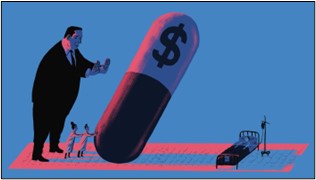 Today's healthcare system is being sold out to Big Pharma.
Today's healthcare system is being sold out to Big Pharma.
The revolving door in Washington allows drugs and drug companies to destroy the good intentions of health care systems. A significant factor is the Food and Drug Administration (FDA), an organization that is designed to keep the population in a constant state of consumption of Big Pharma's products.
Sadly, your optimal health is not the most important goal for the behemoth of a system that is Big Pharma. The return on investment for studying cures is not high enough. Rather, Big Pharma consists of a group of executives that sit around and strategize about how they can capitalize on your illnesses. By keeping you in a diseased state, they keep you taking their drugs day after day, month after month, year after year, which keeps their stock price elevated—and their shareholders happy.
For example, look at the past and current situation with COVID-19. Censorship has prohibited any information that is not about vaccines from being heard over social media and news channels. Personally, I know friends and businesses that have been shut down for speaking up about natural solutions to improving the immune system, as well as natural antivirals. A good example is colloidal silver, which has a tremendous antiviral effect and is completely safe to consume. Companies and people who were trying to educate the public about this are either being thrown in jail or silenced another way.
Ozone therapy is another example. I interviewed Dr. Frank Shallenberger on my YouTube channel last year. Dr. Shallenberger is a board-certified physician in anti-aging medicine, founder, and medical director of The Nevada Center of Alternative and Anti-Aging Medicine in Carson City, Nevada. He is also the leading expert in the medical use of ozone in the United States. Despite Dr. Shallenberg's reputation as a leader in the field, the interview was taken down due to not conforming to the community standards and/or spreading misinformation about COVID-19.
And, of course, melatonin has not received the recognition it deserves. The benefits of melatonin have been covered by a couple of small news outlets and various papers here and there, but wouldn't you think that Dr. Fauci or other prominent voices would be encouraging the public to consume such a safe and effective hormone?
The Dangers Of Using Sleeping Pills
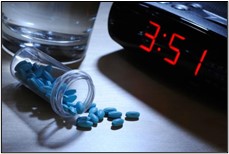 Sleeping pills are the 3rd leading cause of death in the United States.
Sleeping pills are the 3rd leading cause of death in the United States.
I’d go as far as saying that sleeping pills are criminal.
According to ScienceDaily, and based on an article published in the British Medical Journal, Feb. 27, 2012, “People are relying on sleeping pills more than ever to get a good night's rest, but a new study by Scripps Clinic researchers links the medications to 4.6 times higher risk of death and a significant increase in cancer cases among regular pill users.”
This speaks to the overall health risk of sleeping medications. The Pharmacy Times printed a story that stated:
“Sleeping pill users in the middle third (of sleeping pill consumption) had a 20% increased risk of developing cancer, whereas, those in the top third of users had a 35% increased risk. Zolpidem users in the top third had a 28% increased risk of major cancer. Temazepam users in the middle third had a 44% increased risk of major cancer, and users in the top third had a 99% increased risk. The study’s results indicated that the increased risk of death and developing cancer associated with sleeping pill use was not attributable to pre-existing diseases.”
That means these medications caused cancer in these cases. By extrapolating their findings to the entire U.S. population, the researchers estimate that sleeping pills may have been associated with 320,000 to 507,000 excess deaths in 2010. Did you read that? That's up to half a million deaths, making sleeping pills the 3rd leading cause of death in the United States, just 13% behind cancer.
But wait, here’s the real kicker! If sleeping pills are associated with these numbers and cancer is a clear side effect, how many cases of the 600,000 cancer deaths yearly are due to sleeping pills? The numbers start to blur, but it is clear these medications are causing much more harm than potential good. So don't support the companies making sleeping pills by taking them. Lives, and potentially yours, are on the line.
To understand the total picture and the tremendous danger of sleeping medications, you need to consider that according to the U.S. Center for Disease Control (CDC), 2,468,435 people died in the U.S. alone in 2010. If this estimate is accurate, it means that 13% to 20.5% of those deaths may have been associated with sleeping pills. Again, a 460% higher risk of death, potentially contributing to 20.5% of all the deaths each year, and a 99% potential increase in cancer for a non-life-threatening condition is insane.
The time is now for melatonin and other natural sleep-promoting options to shine. Sleep is like a symphony with a flow of changes between light sleep, deep sleep, and REM. If someone were knocked out by Mike Tyson and placed next to a person sleeping soundly, they might look the same. However, when each person got up, they would feel quite different. The person waking up after an Ambien or any of the other conventional sleeping pills will not have experienced the same level of restful sleep when compared to an individual who slept naturally.
Many sleeping pills suppress melatonin, and when you consider the powerful effects of melatonin as a cancer inhibitor, it follows that suppressing natural melatonin production will increase cancer risks. Also, Ben and I have both discussed many diseases and negative aspects of health caused by poor sleep, including on Ben's podcast and in the following articles:
- The Last Resource On Sleep You’ll Ever Need: Ben Greenfield’s Ultimate Guide To Napping, Jet Lag, Sleep Cycles, Insomnia, Sleep Food, Sleep Supplements, Exercise Before Bed & Much, Much More!
- The 3 Most Important & Effective Sleep Ingredients To *Finally* Get The Full, Restful Night Of Sleep Your Body & Brain Craves With Angelo Keely.
- Sleep Genetics (& 3 Ways To Crush A Good Night Of Sleep), Why You Get Depressed When You Get Bored, Personalized Exercise & Diet Based on Genetics & Much More With Kashif Khan Of The DNA Company.
- 7 Surprising Reasons Your Sleep Surface & Sleep Environment May Not Be As Optimized As You Think, With Essentia Mattress CEO Jack Dell’Accio.
- How I Track Sleep, The Top 7 Sleep Parameters To Track, Interpreting Your Sleep Trends & Much More.
This is by no means an exhaustive list of resources because quality sleep is so critical for optimal health. For even more articles and podcasts, search for “sleep” on Ben's website.
Supraphysiological Dosing Of Melatonin: Safe and Effective
Studies show that melatonin is often beneficial at high therapeutic doses to achieve the desired effect.
Also, many studies have proved that melatonin use at these high doses, even up to 800 mg daily, is safe for humans.
This review summarizes the physiology of melatonin and discusses its potential therapeutic applications. Melatonin toxicity in both animal and human studies is extremely rare. However, minor side effects such as headache, rash, stomach upset, and nightmares have been reported on rare occasions. A dose as high as 800 mg per kg body weight was not lethal. That’s 56,000 mg for a 160 lb person!
Studies were also carried out on human subjects who were given varying doses of melatonin ranging from 1 g to 6.6 g per day for 30 to 45 days (1,000 mg – 6,600 mg), after which comprehensive tests were done on them to detect potential toxicity. Findings showed that apart from drowsiness, all measures were normal at the end of the test period. The following studies have also supported the safety of supraphysiological dosing of melatonin:
- Melatonin as a form of contraceptive for women has been proposed, raising the question of whether melatonin damages the female reproductive system. However, no adverse effects were reported in a phase 2 clinical trial on 1,400 women who were given 75 mg of melatonin every night for four consecutive years. That’s a nice stretch that would indicate that it is plausible that melatonin at very high doses is safe for long-term use.
- Another study using a high dose of melatonin (1 g per day for one month in humans) shows no adverse effect on the individuals. In a study, 80 mg of melatonin were given to healthy men every hour for 4 hours with no adverse effects other than drowsiness.
- A study of children with muscular dystrophy who took 70 mg per day of melatonin revealed reduced cytokines and lipid peroxidation.
- A randomized, controlled, double-blind clinical trial done recently on 50 patients referred for liver surgery demonstrated a single preoperative oral dose of 50 mg per kg of melatonin which is up to 3 g for an adult, was both safe and well-tolerated [25].
When reviewing the available research on supraphysiological melatonin dosing, with some of the studies even administering doses as high as 3,000 mg, it’s evident that melatonin is extremely safe. Although I’ve never tried a full 3,000 mg of melatonin in an evening, I have taken 1,000 mg, and not only did I tolerate it, it felt beneficial. However, I am certainly not suggesting that you take doses that are that high, especially outside of medical supervision.
The most common dosage I prescribe to my patients in my clinic is 100 to 200 mg about 30 minutes before bedtime. I recommend that folks interested in supraphysiological melatonin dosing start low and work their way up to allow for adaptation and cellular detoxification.
Contraindications To Melatonin Supplementation
There are certain cases in which melatonin supplementation is not recommended.
If you meet the following criteria, you should consult with a doctor if you feel you want to start on a melatonin protocol (and, as I said before, I recommend you consult with a doctor even if you don't meet the criteria below).
People that are taking steroids such as cortisone or dexamethasone should consider that melatonin may counter some of the effects of these medications. In addition, a small subset of individuals may have insulin and diabetic reactions to high-dose melatonin due to the MTNR1B gene. Currently, there are no known strategies that allow these individuals to continue melatonin without those side effects.
Dr. Reiter said:
“Caution for individuals with MTNR1B a gene mutation is warranted. In all my years, I have not come across even one case of this. I am aware of a dietetic friend who takes as much as 1 gram (yes, gram) daily without consequence. I am not diabetic, but if I was melatonin would even be of greater interest to me, because it is usually very beneficial in these cases.”
Due to the unknown risks, it is not recommended to take melatonin if you are pregnant. Women that are wanting to conceive should not take more than 10 mg per day, as it might prevent ovulation.
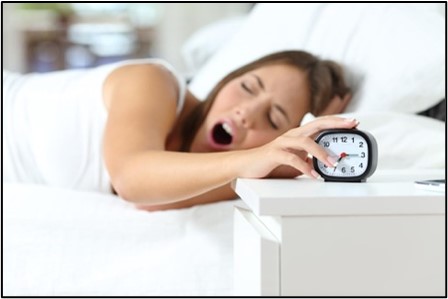 I have also noticed that there is a subset of individuals who experience more pronounced grogginess or drowsiness the day after taking larger or even small doses of melatonin. There is a polymorphism of a gene called CYP1A2 which slows the breakdown of melatonin. This gene also impacts caffeine metabolism, and for those sensitive to caffeine, the effects seem to be much longer lasting. This may be an indicator that you have this gene variant. What that means is that you will also break down melatonin slowly. This could cause melatonin to continue in the bloodstream much longer than normal. With cases like this, I have had success dosing people hours earlier than their bedtime. Keep in mind that melatonin with light exposure should not cause drowsiness, so taking melatonin in the late afternoon or dinnertime might work better so that by the time you wake up, the melatonin has been fully metabolized and cleared out of the blood.
I have also noticed that there is a subset of individuals who experience more pronounced grogginess or drowsiness the day after taking larger or even small doses of melatonin. There is a polymorphism of a gene called CYP1A2 which slows the breakdown of melatonin. This gene also impacts caffeine metabolism, and for those sensitive to caffeine, the effects seem to be much longer lasting. This may be an indicator that you have this gene variant. What that means is that you will also break down melatonin slowly. This could cause melatonin to continue in the bloodstream much longer than normal. With cases like this, I have had success dosing people hours earlier than their bedtime. Keep in mind that melatonin with light exposure should not cause drowsiness, so taking melatonin in the late afternoon or dinnertime might work better so that by the time you wake up, the melatonin has been fully metabolized and cleared out of the blood.
Since melatonin also chelates heavy metals out of the central nervous system, it could create a detox reaction in the body which may cause temporary side effects with higher doses. In my clinic, I have found that many people with side effects initially adapt to the melatonin after a few days on the higher dose. This is like if you were experiencing fatigue for many days or weeks, leaving you with little energy to keep your home clean and organized. Imagine that suddenly, you gained plenty of energy and motivation. You would then likely begin fixing broken things in your home, cleaning, and throwing things away that you no longer need. This is what happens at the cellular level when there is poor mitochondrial function, and the cells can no longer adequately preserve themselves, which involves maintaining all of the functional components within the cell as well as clearing toxins that normally develop when you make energy.
The world we live in has so many different toxins that are additional stressors that each cell needs to handle, resulting in even more energy requirements to clear these toxins. Although you should talk to your doctor or healthcare practitioner about any side effects from melatonin supplementation, this phenomenon should be considered an adaptation phase that can be normal.
How To Naturally Improve Melatonin With Sauna Or Hot Baths
Doing saunas, hot baths (preferably with Epson salts), hot showers, and Jacuzzis could help boost melatonin levels naturally.
The effect of increasing melatonin levels through heat might be one reason that hot therapies improve health and life span.
A study in April 2015 in JAMA showed that regular sauna use could decrease all-cause mortality while improving and extending life.
It has long been known that taking a hot bath before bed can sometimes improve sleep onset or help you fall asleep faster. Melatonin works to drop your body temperature, and this is why sleeping in a cold room supports sleep throughout the night. Perhaps melatonin is working to normalize your temperature after the heat before Sandman takes you into a beautiful night of sleep.
Ben talks more about the benefits of heat therapy in the following podcasts and articles:
- Fire & Ice: Tips, Tricks & Biohacks To Maximize The Benefits Of Sauna, Hyperthermia, Cryotherapy & Cold Thermogenesis.
- The Latest In Sauna Science: 9 Potent Health Benefits of Sauna, Plus 5 Tips for Getting the Most Out of Your Sweatbox Experience.
- The Ultimate Detoxification Guide: How To Use Supplements, Saunas, Skin Brushing & More To Quickly & Safely Clean Up Your Body: An Official “RUNGA” Q&A.
Among the studies Ben has reviewed, there does not appear to be one specific temperature, duration, frequency, technique, or even type of sauna that’s correlated with the most health benefits. He recommends that you simply use whatever sauna you have access to, as often as you can, whenever you can, for anywhere from 15-60 minutes at a time. Ben has a Clearlight sauna at home, and he does just that (you get $500 off and a free gift with the mention of BEN GREENFIELD if you decide to treat yourself to a home sauna). He also has an infrared sauna blanket, which is a more affordable option.
The Best Delivery Methods For Melatonin Supplementation
One major consideration regarding supplementing with melatonin is the different routes of administration.
These include oral supplementation, intravenous or subcutaneous injection, suppository delivery, and liposomal delivery.
Of course, the most common is oral supplementation. Like with all oral routes of delivery, melatonin must be met with gastric acid and pancreatic enzymes before it is then metabolized through the liver. This is why, in this study, oral administration of melatonin only demonstrated a 2.5 % absorption rate.
By contrast, intravenous or subcutaneous injection may bypass hepatic (liver) metabolism for what's called “first pass” through the liver.
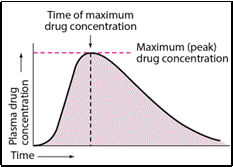 During my personal journey with chronic Lyme disease and mold illness, I was considering beginning to use glutathione suppositories. Glutathione is a substance produced by the liver and made from the amino acids glycine, cysteine, and glutamic acid. It is involved in tissue building and repair, making chemicals and proteins needed in the body, and immune system function.
During my personal journey with chronic Lyme disease and mold illness, I was considering beginning to use glutathione suppositories. Glutathione is a substance produced by the liver and made from the amino acids glycine, cysteine, and glutamic acid. It is involved in tissue building and repair, making chemicals and proteins needed in the body, and immune system function.
At the time, I didn't know what was wrong with me, and I just knew that I had massive inflammation in my body. After looking at the role of glutathione, I knew this would be a helpful nutrient. However, I wasn't interested in regular visits to a doctor’s office to receive these intravenously. It was then that I discovered suppositories.
After I began using glutathione suppositories and noticed a drastic improvement in my condition, I decided to try intravenous administration. Surprisingly, I found that I responded better with the suppositories than with an intravenous procedure that cost $150 and two hours of my day in the doctor’s office.
This got my attention. I wanted to understand why the suppositories seem to work better.
The answer to my question involved the concept of peak plasma. Peak plasma refers to maximal blood levels of a certain nutrient after delivery. It's a practical way to look at various routes of administration and evaluate the most effective to promote optimal absorption into the body.
With this in mind, a study by Kennaway and Seamark showed that subcutaneous injection of melatonin quickly leads to high peak plasma levels but that it declines rapidly. By contrast, oral administration leads to a lower but longer-lasting and constant peak plasma melatonin level.
DeMuro demonstrated that intravenous injection of melatonin could reach a much higher serum peak plasma levels of melatonin concentration when compared to oral administration. However, the half-life of melatonin in the serum showed no significant difference between these two routes of administration. This means that the routes of melatonin administration will influence the peak plasma level of melatonin but not the half-life of melatonin. Melatonin will circulate in the blood just as long regardless of the delivery route.
Today, liposomal delivery systems, with their advanced nutrient bioavailability, are becoming more popular. There are over 65,000 peer-reviewed published studies on liposomal delivery of various substances. This delivery method is utilized in medicine to administer vaccines, hormones, enzymes, vitamins, botanicals, and more.
Liposomes are tiny lipid bubbles about the width of a single human hair. They are made out of the same type of fat as your cell membranes, which are called phospholipids. Liposomes are stable and can carry both water and fat-soluble nutrients. When formulated correctly, liposomes can facilitate absorption as soon as they land on your tongue and can help protect against breakdown by digestive acids and enzymes, and the first pass through the liver. Since they are made of the same lipids that compose your cell membranes, they may assist nutrients in gaining access to the cell membrane and optimize cellular support. Nutrients delivered in the liposomal form at lower doses may offer equal or greater efficacy than higher doses provided in less bioavailable forms.
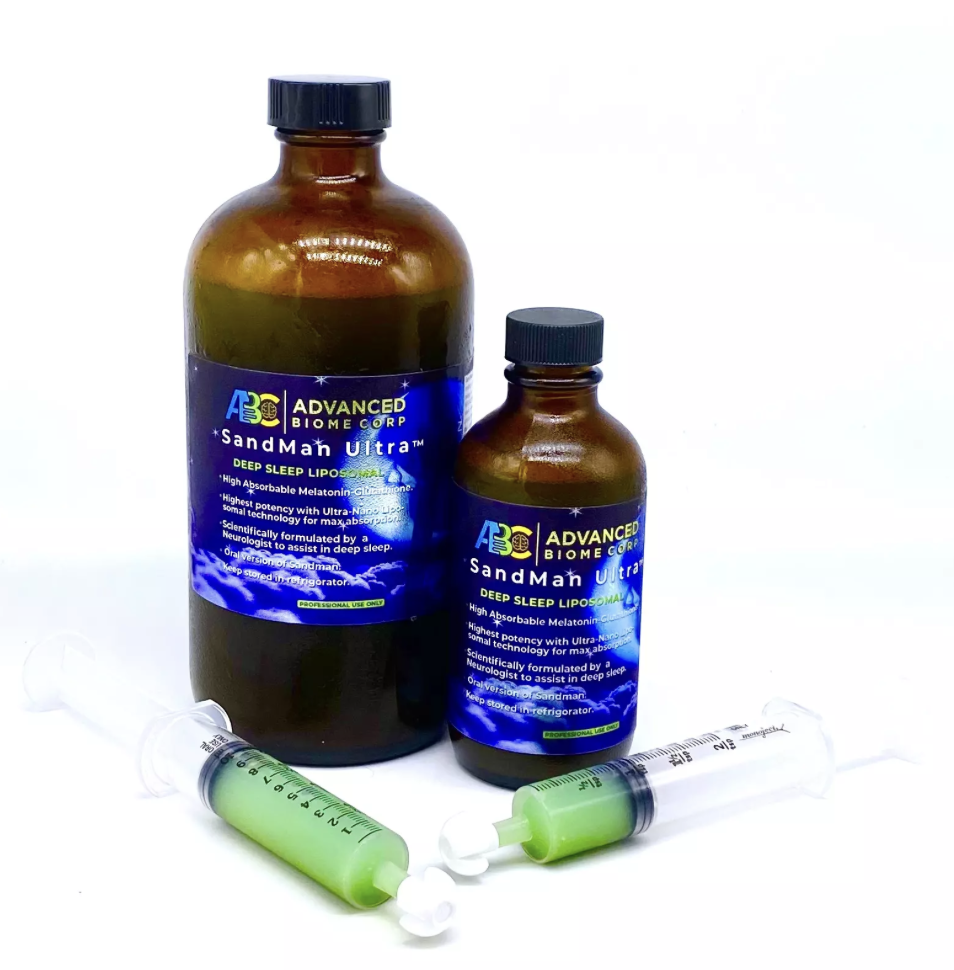 The potency of liposomal delivery for melatonin is impressive. Also, the phospholipids in liposomes are therapeutic. Phospholipids provide a fluid character to the membranes. They help nourish every cell membrane by providing the lipids needed to function optimally and flush out toxins that accumulate there.
The potency of liposomal delivery for melatonin is impressive. Also, the phospholipids in liposomes are therapeutic. Phospholipids provide a fluid character to the membranes. They help nourish every cell membrane by providing the lipids needed to function optimally and flush out toxins that accumulate there.
With all of the documentation, many have concluded that a very high pharmacological dose of melatonin under the supervision of a physician or healthcare provider in the therapy of various conditions should be safe and acceptable. Melatonin protects you when you are under stress. Therefore, it might make sense to supplement melatonin during times of stress or when your body is dealing with various disease conditions. The aging process also seems to be slowed through the supplementation of melatonin, so it is recommended if you want to be healthier and live longer.
I take 100 mg to 200 mg of melatonin each night, either in a suppository or a liposomal delivery form. This has been my practice for nearly two years now, and I have never felt better. This dosage may not be for everyone, and it is certainly important that you discuss supraphysiological doses of melatonin with your healthcare provider before you start.
For the vast majority of people, high doses of melatonin are safe and effective in supporting the body and brain in a wide range of natural stress and disease states.
Melatonin For Tech & Toxin Stress Protection
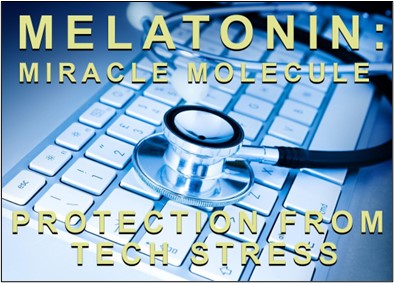 It's important to consider that you no longer live in a natural environment.
It's important to consider that you no longer live in a natural environment.
Modern-day technology is wreaking havoc on your health.
In the past, you did not have to deal with unnatural green and blue light emitting from your cell phone, computer, television, and the lighting in your home. You did not have to deal with the melatonin-destroying medications many people take regularly. You did not have to deal with the electromagnetic stress that lowered your melatonin levels. Moreover, you have not evolved to handle the overload of chemical toxins in the environment.
Technology has created a situation where many people are ultra-productive with their mobile devices. The ability to work and even run a business through a handheld device creates a situation where there is never really downtime. I am just as guilty of this as anybody, as it becomes an addiction to be more and more productive and to share your life with others on social media instead of taking time to enjoy quiet and peace.
It doesn't take much time on a device to interfere with melatonin production either. The Sleep Health Foundation reports that the bright light from mobile phones, tablets, computers, and televisions blocks the release of melatonin after only 1.5 hours of using technology in the evening. Even using special modes on devices to reduce blue light may not help. The journal Lighting Research & Technology found that even when participants put an iPad in Night Shift mode, melatonin was still significantly suppressed after a single hour of use.
Lastly, most people lack sunshine on their skin and in their eyes. This results from living primarily in an indoor, temperature-controlled environment with artificial lighting. Even when you are outdoors, you may avoid the sun and wear sunglasses, which prohibits the production and release of melatonin in your body. The journal Environmental Health Perspectives published a comprehensive article titled “Benefits of Sunlight: A Bright Spot for Human Health,” in which they stated that forgoing sunglasses in the daylight, even for just 10-15 minutes, could confer significant health benefits.
Indeed, it is a more stressful time in many regards than at any other point in history. While evolutionarily, we evolve to handle stressors, there is still a significant negative impact on your body's natural processes. I would not be without melatonin supplementation, considering the effects of a modern lifestyle on the levels of this highly important hormone.
Summary
I worked on my book Melatonin: The Miracle Molecule for a year and a half.
The process was a labor of love. There was a tremendous feeling of purpose in delivering this information to the world.
While there are a couple of other well-written books on melatonin, new research has since been published, and I felt that a holistic and naturopathic viewpoint on integrating melatonin to support various health concerns was needed. I honestly can't think of a single condition that wouldn't benefit from supplementing with melatonin, as it has such a wide, diverse, and positive effect on so many aspects of health through stress responses. Consider the changes that have occurred over the years: the invention of light bulbs and artificial light, harmful EMFs, drugs, toxins in our water supply, chemicals from plastics in our food and water, poor air quality, aluminum, mercury-laden fish, and other heavy metals, GMO’s, pesticide and chemical-laden food, microbiome destroying antibiotics, technologies that adrenalize us throughout the day, and superbugs like COVID-19. And that's not even a comprehensive list!
It's also important to factor in the global pandemic. There are safety and efficacy concerns about experimental vaccines that are being forced on society. With isolation, social distancing, and fear-based media, it is no wonder people are suffering from many mental and emotional afflictions.
There has never been a more appropriate time for the widespread use of melatonin. Of course, my opinion is that supraphysiological dosing, in most cases, is the most effective use of the “miracle molecule.” Biohacking my own body has resulted in months of melatonin supplementation at 800 mg, and it has resulted in nothing but positive effects on my resilience to stress. I have also not found any challenges when abruptly discontinuing the use, which supports the research showing that melatonin supplementation doesn't shut down natural production.
Here is a recap of the most important points made above:
- Big Pharma continues to capitalize on illness and disease, which has negatively impacted knowledge of the health benefits of melatonin.
- Sleeping pills are the 3rd leading cause of death in the United States.
- Melatonin is often beneficial at high therapeutic doses to achieve the desired effect.
- There are certain times in which you should not take melatonin, for example, when you become pregnant. You should also consult a healthcare professional before starting a regular melatonin regimen.
- You can naturally enhance melatonin through sauna and hot baths with Epsom salts.
- You can supply yourself with melatonin via intravenous or subcutaneous injection, suppository delivery, and liposomal delivery.
- Melatonin can help support your health by way of fighting against skin conditions, premature aging, liver disease, metabolic disorders, and much more—not just sleep.
As always, before starting a supplement protocol, you should consult with a doctor who understands melatonin and can help guide you with an appropriate dosing schedule. Unfortunately, there are not enough doctors that know of the incredibly long list of benefits melatonin has to offer. Yet other prominent physicians such as Dr. Joe Mercola, Dr. Russell Reiter, and Dr. Frank Shallenberger share my viewpoint after studying the research. Thankfully, with remote health visits now routine, you may be able to connect with an out-of-town physician with a melatonin knowledge base if you can't find a local doctor.
Indeed, it is time for melatonin's miracle story to be told. Now that you know the benefits of melatonin supplementation, I hope you can apply this knowledge to be healthier, live longer, and build your resilience to stress. I also hope you will share this information with your friends and family. I will end with my philosophy on health and life:
“When we are healthier, we're happier, and when we're happier, we treat ourselves better. When we treat ourselves better, we treat other people better. When we treat other people better, other people are happier, and the world is a better place for it.”
Do you have feedback for me or Dr. John Lieurance? If you're already supplementing with melatonin, we'd love to hear how it's going for you. If you're thinking of starting and have questions, please leave them below, and we'll respond!

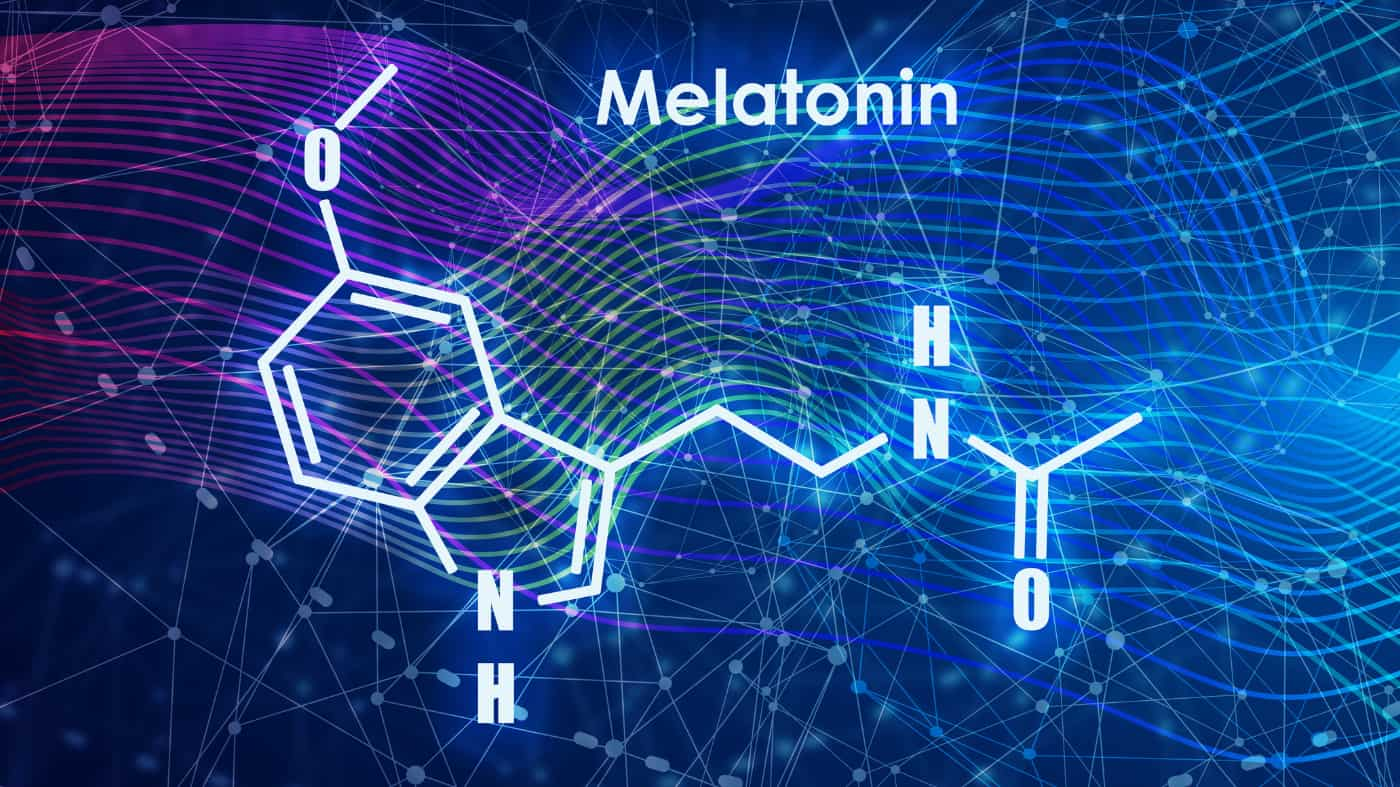
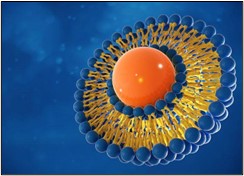
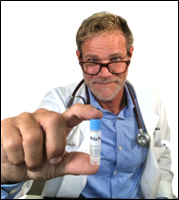

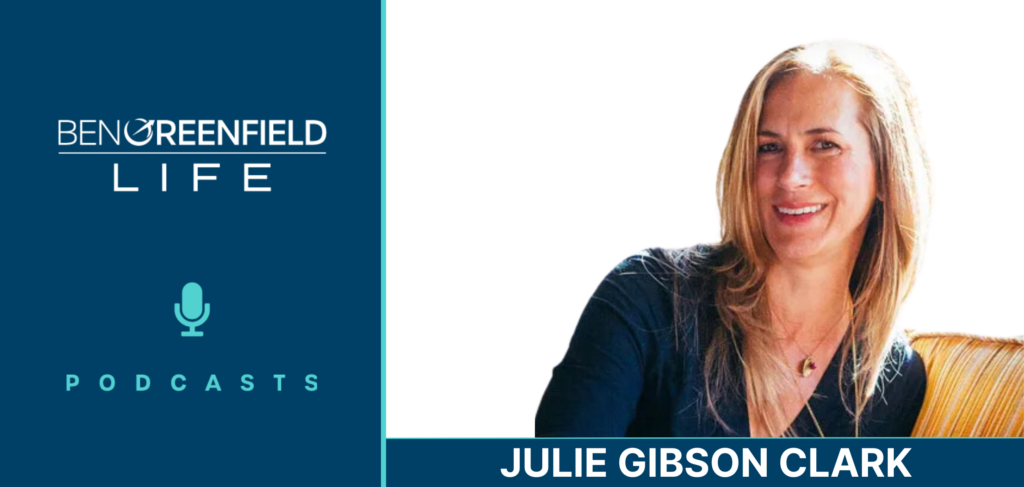


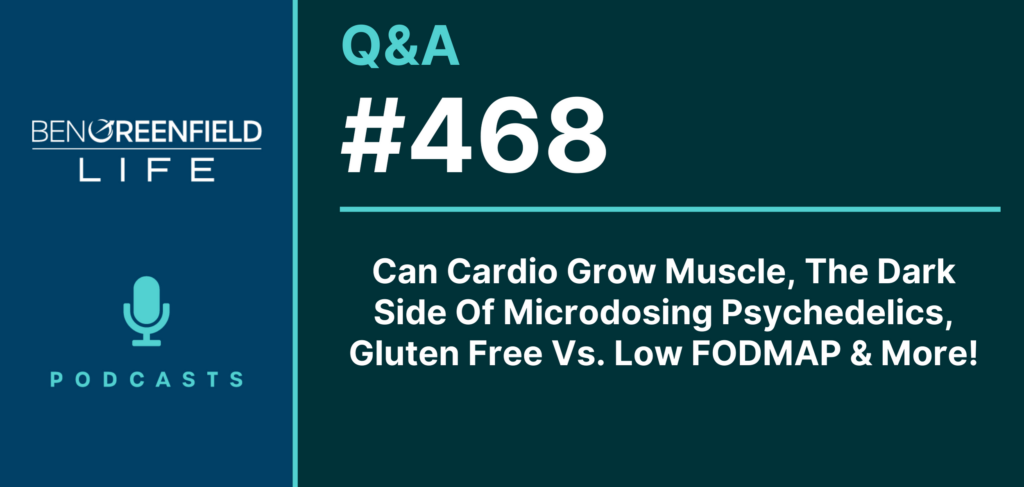
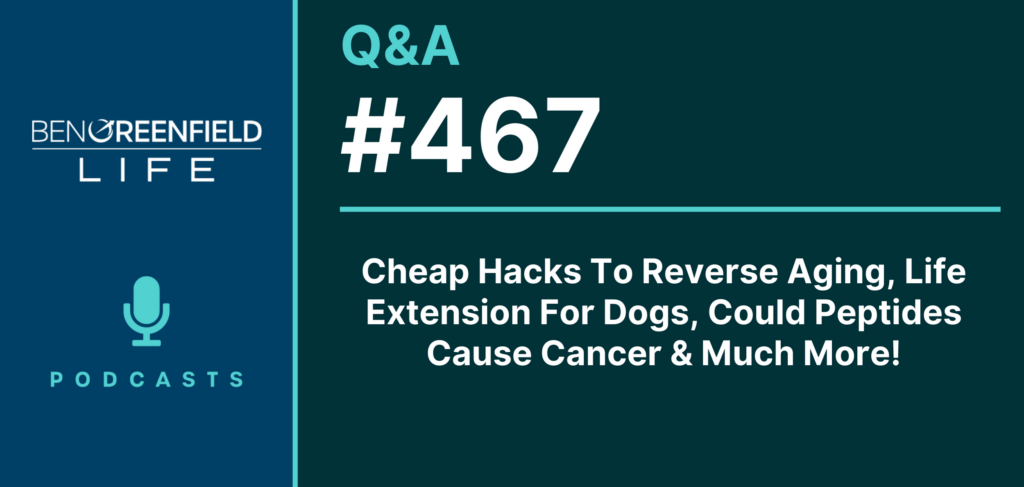

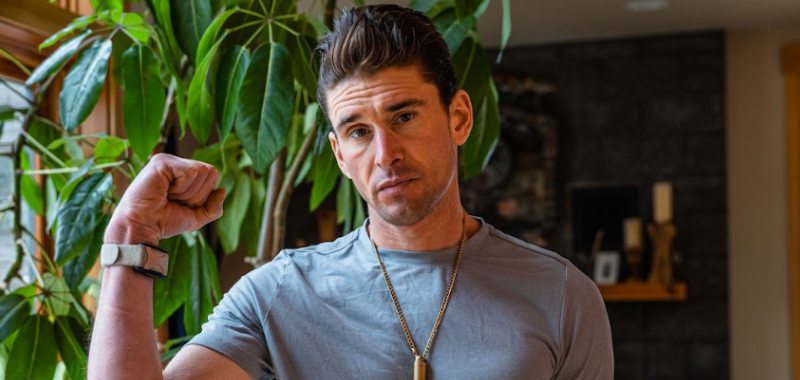

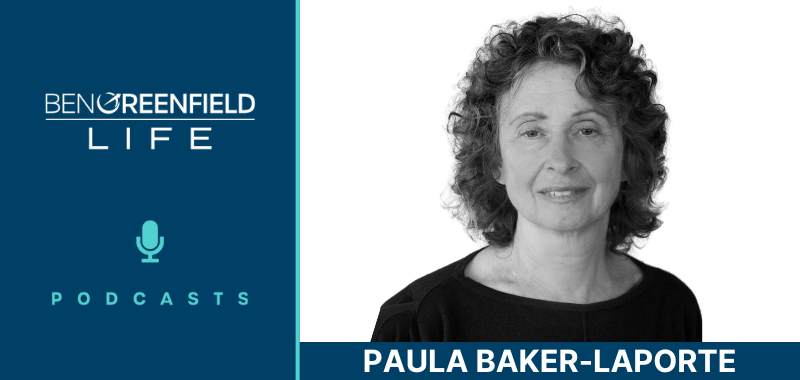
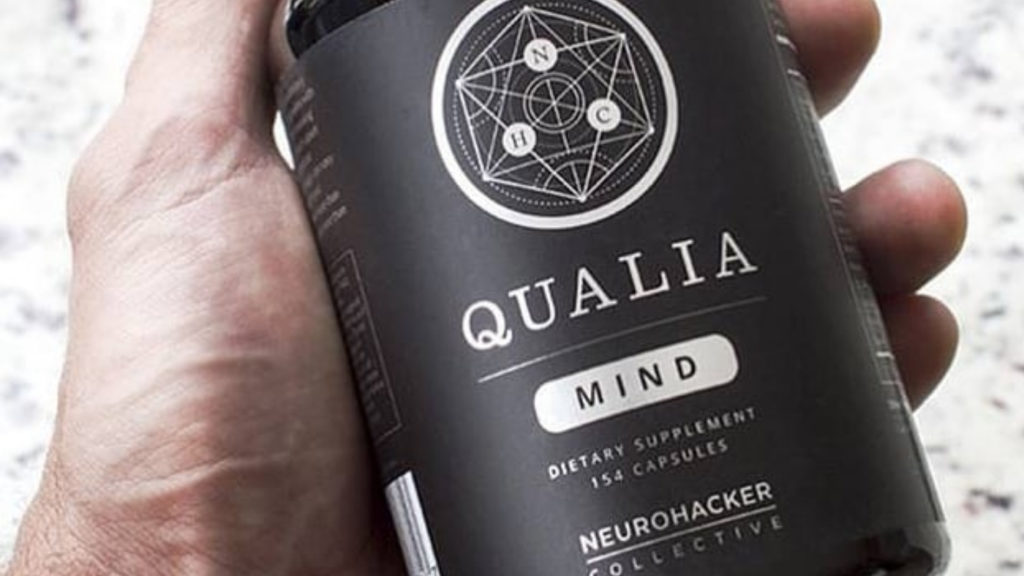

I recently did a hormone Dutch test that includes morning urine melatonin. Hearing 87 y.o. Reiter say he was on 80 mg, I’ve been taking 30 mg for several months, age 66 years. I didn’t take any the night before testing. My result was 13,164! Range is 10-85 ng/mg. My doctor said to reduce to 10 mg. That is a tiny dose to what’s recommended in this article. How relevant is the Dutch test urine result and does it really mean I’m way overdosed?
I have been taking 300+mg for 8 months and now over a gram daily for several months with no ill effects. I have taken dosages as high as 3.5 grams at 100+kg bodyweight. The only major issue was minor nausea. I also have had slight head tightness and sleepiness.
I take my dosage transdermally with DMSO midday.
I tried the highest dose when I had flu/cold symptoms in place of OTC medications and to my surprise 2.5-3 grams eliminated cold/flu symptoms(runny/stuffy nose, body aches, etc) as well as OTC meds. I felt better almost immediately.
This study (http://www.melatonin-research.net/index.php/MR/article/view/19) found that 95% of our melatonin production actually occurs during the day after NIR stimulation, not from the pineal gland, but rather on-site in the mitochondria. The other 5% comes from the pineal in the evening/night. Since we naturally have a lot of melatonin in our cells during the day, but not in our plasma, I am not sure about taking such high doses. Even if it is safe, it seems against our natural rhythms to have such high plasma levels. Thoughts?
What about time released melatonin? Is it going to disrupt the architecture of sleep? Thank you!
This study might help: www.ncbi.nlm.nih.gov/pmc/articles/PMC7843808/
Is there a discount code for the melatonin link?
Hey Barbara, code BEN should get you 5% off or use this link — bengreenfieldlife.com/glutagenic
Couldn’t see a reference in the link pertaining to time released.
Melatonin as a form of contraceptive for women has been proposed, raising the question of whether melatonin damages the female reproductive system. However, no adverse effects were reported in a phase 2 clinical trial on 1,400 women who were given 75 mg of melatonin every night for four consecutive years. That’s a nice stretch that would indicate that it is plausible that melatonin at very high doses is safe for long-term use.
GUYS, the link on this paragraph goes to a rat study… Please fix this and send me the proper link. Thank you.
Would love to get some input on melatonin supplementation for kids.
We have 4 kids at home and our twin grirls (4 years) are waking up and need help get back to sleep on average 3x per night… we still have nights where we have 8 interruptions because of them.
We “tried it all” but nothing seems to help. Maybe melatonin could be a solution?
Did you try getting rid of all electronics and making them play outside extensively? Feeding them non-heavily processed foods and minimal sugar?
Drugging your kids is never a good thing.
Yes. Our kids are outside everyday, rarely use electronic devices/screens or get sweets and we eat relatively healthy.
They don’t have a bright nightlight (a very small one though), we shut down wifi and (in parts) even power lines at night.
They have a bed time routine (incl. reading and singing) and go to bed at the same time every day.
I’m all outta ideas…
I’m not a practitioner. My 9 year old takes liposomal melatonin every night and it works wonderfully. He takes one squirt – 1.5 mg- of davinci labs brand. If he doesn’t, he takes 2-3 hours to fall asleep. Seems harmless to try versus the terrible sleep you all are getting. There is so much complexity to our bodies. In my family we have genetic mutations that tend us toward low serotonin, which will likely make for low melatonin since the body makes melatonin from serotonin. If you fix your twins sleep by supplementing with melatonin, and they still have low serotonin symptoms, you might look into supplementing with 5-HTP to get to the source of the problem.
“Dirty Genes” is one book which teaches about this type of thing. Blessings in your parenting journey! My teen is struggling with sleep. 5-HTP is helping with day time mood, but dosing up to 6mg of melatonin seems to make sleep worse.
My one remaining reservation to exploring a high-dose melatonin protocol was melatonin’s supposed potential to increase bone fracture probability. I don’t see any comments on this potential danger in the article. Thoughts?
Guess we aren’t going to get a reply to our questions that they said they would readily answer. Oh well. I guess that’s additional evidence to support not high-dosing melatonin.
I have taken dosages up to 3.5 grams (transdermally with dmso) and daily at over 1 gram for several months. I have been taking at least 300mg daily for 8+ months.
I deadlifted 655 just last week at 100kg. If anything my recovery is better. Melatonin improves recycling of NADH.
I call BS.
”
Melatonin reduces bone resorption by decreasing the levels of ROS and RANKL, which represent the decreased oxidative stress and osteoclastogenesis, respectively. Melatonin increases new bone regeneration by promoting the proliferation and migration, as well as the chondrogenic and osteogenic differentiation of MSCs.”
“In conclusion, melatonin functions as a protector in bone injury, osteoporosis, OA and periodontitis by exerting multiple effects. Melatonin supplementation in humans has a generally favorable safety profile. Due to the protective effects of melatonin, as well as its low price and high safety, exploring melatonin as a supplement to bone tissue and bone-related disease therapy is worthwhile. ”
https://www.ncbi.nlm.nih.gov/pmc/articles/PMC7979260/
I’m not a practitioner, but a quick google search to look at the studies you are talking about says they gave mice 50mg melatonin/kg to induce such a fun time for the mice. That would be 2,750mg of melatonin for my 120lb teen. In this article Ben says he regularly takes 100-200mg, which is 13-28 times less than the amount in the mice studies.
Jared – I think you’d find this scientific article fascinating. It’s kind of a survey of research done with melatonin, and it includes the negative effects in mice of the super high dose, but gives lots of benefits at not-quite-as-high doses, and some benefits at just-as-high-or-higher doses.”
This is the conclusion that I copied,” In conclusion, melatonin functions as a protector in bone injury, osteoporosis, OA and periodontitis by exerting multiple effects. Melatonin supplementation in humans has a generally favorable safety profile. Due to the protective effects of melatonin, as well as its low price and high safety, exploring melatonin as a supplement to bone tissue and bone-related disease therapy is worthwhile. However, since a few studies have reported adverse effects, and there is no consensus on the optimal program of melatonin administration, further research is required to explore the optimal administration conditions and safety of long-term melatonin supplementation.”
This is the link:
https://www.ncbi.nlm.nih.gov/pmc/articles/PMC7979260/